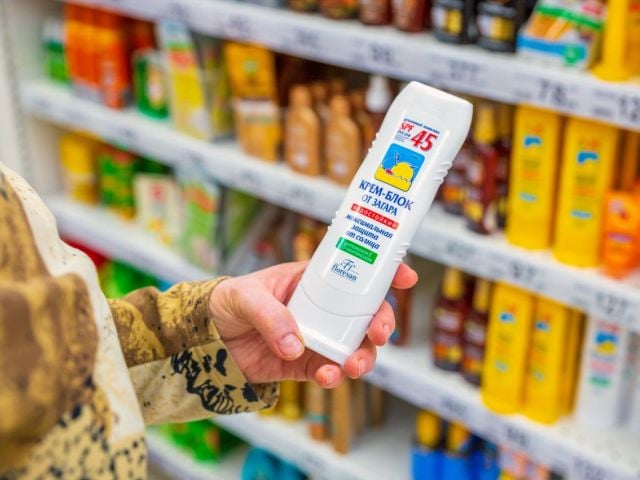SACRAMENTO, Calif. – In a major victory for safer, healthier food, Gov. Gavin Newsom signed the California Food Safety Act, the first law in the U.S. to ban four harmful chemicals from candy, cereal, soda and other processed food sold and produced in the state.
Assemblymember Jesse Gabriel (D-Woodland Hills) authored the law, which ends the food uses of brominated vegetable oil, potassium bromate, propyl paraben and Red Dye No. 3. These chemicals are linked to serious health problems, such as hyperactivity, nervous system damage and an increased risk of cancer.
All four additives have already been banned by European regulators, with the narrow exception of Red Dye No. 3 in candied cherries.
“The Governor’s signature today represents a huge step forward in our effort to protect children and families in California from dangerous and toxic chemicals in our food supply,” said Gabriel, chair of the state Assembly Committee on Privacy and Consumer Protection.
“It’s unacceptable that the U.S. is so far behind the rest of the world when it comes to food safety. This bill will not ban any foods or products – it simply will require food companies to make minor modifications to their recipes and switch to the safer alternative ingredients that they already use in Europe and so many other places around the globe,” he said.
The Environmental Working Group and Consumer Reports co-sponsored the bill.
Food safety ‘milestone’
“This is a milestone in food safety, and California is once again leading the nation,” said Ken Cook, EWG president. “We applaud Gov. Newsom for signing this landmark bill and putting the health of Californians before the interests of industry.
“California is creating a healthier market for consumers,” he said.
This groundbreaking law may affect food across the country, not just in California, so all Americans will likely benefit from the ban. Given the size of the state’s economy, it is unlikely manufacturers will produce two versions of their product – one to be sold solely in California and one for the rest of the country. As many as 12,000 products may be affected, based on EWG’s Food Scores database.
“These toxic chemicals have no place in our food,” said Susan Little, EWG’s senior advocate for California government affairs. “Manufacturers in Europe are producing the same food products without these harmful chemicals, so there’s no reason we can’t do the same.
“We’re grateful to Gov. Newsom for taking this groundbreaking step towards giving kids in California access to the same quality of food as kids in Europe,” she added.
Other states have started to follow California’s lead. A similar bill, which would ban the same four chemicals plus titanium dioxide, is making its way through committee in the New York legislature.
Most chemicals added to food and food packaging to enhance flavor or appearance, or to preserve freshness, are likely safe to eat.
But the four food chemicals covered by the California Food Safety Act have been linked to a number of serious health concerns. They were banned by the European Union after it launched a full review of the safety of all food additives in 2008.
Risk to children
Children have lower tolerance levels than adults to chemical exposure, and their developing bodies make them especially vulnerable to harmful chemicals in their food.
“Children are not little adults. They are more susceptible to the harms caused by chemical exposure,” said Homer Swei, EWG senior vice president of Healthy Living Science.
“We also know that children are likely exposed to higher levels of the food chemicals banned by the California Food Safety Act because of the types of foods they are found in – foods like candy, cereal and frozen pizza,” he said.
More than 10,000 chemicals are allowed for use in food sold in the U.S. Nearly 99 percent of those introduced since 2000 were approved by the food and chemical industry, not the Food and Drug Administration, the agency tasked with ensuring our food supply is safe.
The chemicals banned by the California Food Safety Act haven’t been reviewed by the FDA for 30 to 50 years, if ever.
“We’ve known for years that the toxic chemicals banned under California’s landmark new law pose serious risks to our health,” said Brian Ronholm, director of food policy at Consumer Reports.
“California has taken an important stand for food safety at a time when the FDA has failed to take action. Safer versions of food products that are available in other countries should be made available to U.S. consumers too,” he said.
“By keeping these dangerous chemicals out of food sold in the state, this groundbreaking law will protect Californians and encourage manufacturers to make food safer for everyone,” said Ronholm.
Pending petitions
Consumers consistently rank food chemical concerns ahead of other food safety issues. But additives are not adequately regulated by the FDA, due in large part to the lack of financial support from Congress for agency food chemical reviews.
But there’s an opportunity for the FDA to take a step in the right direction.
EWG has signed on to two petitions being considered by the FDA that would revoke approval of the use of titanium dioxide and Red Dye No. 3 in food.
“These petitions offer the FDA a chance to step up to the plate and do its job to protect Americans from toxic food chemicals,” said Scott Faber, EWG senior vice president for government affairs.
“We urge the FDA to take action on these petitions and protect the health of all consumers across the country, ” he continued.
###
The Environmental Working Group (EWG) is a nonprofit, non-partisan organization that empowers people to live healthier lives in a healthier environment. Through research, advocacy and unique education tools, EWG drives consumer choice and civic action.
Founded in 1936, Consumer Reports has a mission to create a fair and just marketplace for all. Widely known for our rigorous research and testing of products and services, we also survey millions of consumers each year, report extensively on marketplace issues, and advocate for consumer rights and protections around safety as well as digital rights, financial fairness, and sustainability. CR is independent and nonprofit.



